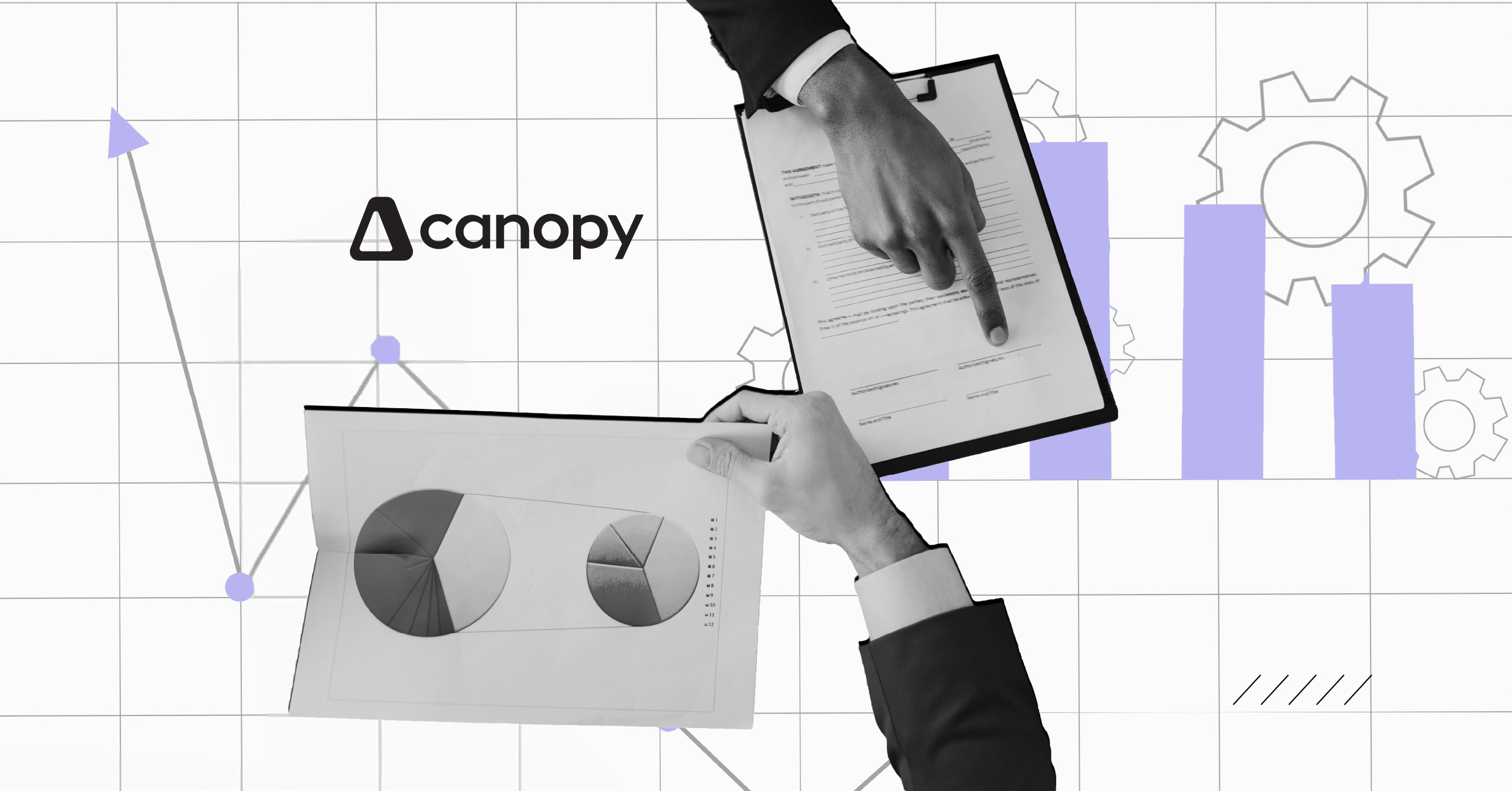The cornerstone of the relationship between accountants and clients is trust. Trust extends both ways:
- Clients must provide accurate information for accountants to manage their books and offer financial advice.
- An accounting firm needs to protect open communication with clients and prevent the disclosure of sensitive information.
Accountant-client privilege is vital in maintaining that trust, setting the boundaries for protected interactions, advice, and data while providing a way for firms and clients to collaborate when planning and forecasting the client’s financial future.
Below, we discuss the importance of accountant-client privilege, the challenges in this age of technology and complex regulations, and how an accounting-based CRM platform is fundamental in helping accountants manage privileged communications while building client trust.
What Is Accountant-Client Privilege?
Accountant-client privilege refers to rules and regulations surrounding financial advice and tax matters and how they are communicated between accounting firms and their clients. While simple in concept, it becomes complex when understanding the dynamic between federal and state levels of compliance.
There is no common law for general accountant-client privilege, but there is a limited exception through the Federally Authorized Tax Practitioner Privilege. This was established by the IRS Restructuring and Reform Act of 1998, where privilege applies only to federal tax matters involving communication between taxpayers and CPAs regarding non-criminal federal tax issues. This privilege doesn’t extend to criminal matters or state tax issues.
Accountant-client privilege varies significantly from state to state. For instance, Florida, Colorado, Missouri, and Pennsylvania recognize limited privilege, but many other states don’t acknowledge it at all. The details vary widely—who holds privilege, which practices are protected, and where the boundaries lie.
The 1961 case United States v. Kovel established the Kovel agreement. This extends attorney-client privilege to specialists like accountants when engaged by attorneys to support legal services. Kovel agreements allow third-party professionals to act as an extension of the attorney’s privileged interactions under limited conditions.
Why Accountant-Client Privilege Matters
While accountant-client privilege doesn’t provide a comprehensive blanket of protection over confidentiality and privacy, it extends a strong underpinning of trust—the cornerstone of any long-term professional relationship.
Risk Mitigation
Accountants have to consider the potential of future legal complications when discerning what types of confidential communications they should enter into with clients. To a limited degree, accountant-client privilege reduces the risk of sensitive financial business data getting exposed in legal proceedings.
Information shared can be vital to a company’s strategic, competitive advantages. Privilege can help companies safeguard sensitive data from fishing expeditions by limiting the scope of investigations to what is legally relevant in court proceedings.
While the scope of protected communications is limited, the added layer of legal counsel can help accountants shape strategic decisions that allow clients to speak freely regarding important financial decisions.
Client Trust
Trust is the most important foundational element of long-term relationships between accounting firms and clients. Open communication and confidentiality without the fear of disclosure allow better planning and decision-making based on comprehensive details.
Accountants build trust by handling sensitive information and honoring discretion at every allowable turn. This trust allows clients to share financial concerns and seek guidance on complex matters, leading to the best financial outcomes.
Competitive Edge
Accountant-client privilege means companies can discuss complex financial matters involved in strategic planning without worrying that competitors can obtain those details through legal proceedings.
Open discussion permits innovative planning that requires frank talks about potential risks and compliance challenges, helping companies set goals based on carefully considered discussion.
In turn, privilege lets accountants attract a diverse range of privacy-conscious clients. By marketing robust policies regarding its handling of sensitive data, a firm can gain a competitive edge against other accountants, while clients enjoy the benefits of a firm’s knowledge about the legal privilege landscape.
Key Compliance Challenges for Accounting Firms
Client confidentiality involves a range of regulatory hurdles for accounting firms, requiring an awareness of how they impact every form of communication with clients and how sensitive data is handled and stored.
Multi-Jurisdictional Rules
Accountant-client privilege requires navigating a patchwork of state laws that vary significantly. Some states have strong statutory protections for accountant-client communication, and others have none at all.
Firms must assess the extent of privilege to avoid unintentionally disclosing information that is protected in one state but not in another.
Courts may apply different approaches to determine which state's privilege law governs in multi-state cases. They might consider federal law, the law of the state where the court is located, or the law of the state most closely tied to the client communication.
This heightens the potential risks of disclosing private communications. Firms are burdened with tracking and complying with different state laws, which touch on legal research, staff training, and client education.
Expanding Service Lines
Accounting firms looking to diversify into advisory and consulting services (like client auditing services (CAS) and fractional CFO offerings) face challenges in compliance, regulations, and clarity for stakeholders.
Following legal guidelines and proper risk management is vital to avoid conflict of interest regarding independent representation and communication for audit and non-audit services.
Risk of Waiver
It’s critical for firms to avoid accidental disclosures of sensitive information through everyday communications like email, public discussions, and other interactions that could lead to a waiver of privilege. Accountants must be aware of how privilege applies jurisdictionally, contextually, and with security management for storage and transmission of information.
How an All-in-One Accounting Practice Management CRM Can Help
A comprehensive accounting-focused CRM streamlines client management, enhances workflow efficiency, and fosters team collaboration.
Canopy takes our dedication to safeguarding client data seriously, so we have gone out of our way to maintain the highest security standards for our platform.
The American Institute of CPAs (AICPA) developed the SOC reporting platform as a standard for cyber security criteria for compliance. SOC 2 compliance demonstrates a firm’s commitment to security. SOC 2 accounts for security, availability, confidentiality, privacy, and processing integrity of client data.
SOC 2 compliance is a voluntary process involving several months of expensive external audits. Canopy takes security seriously; we’re proud of our SOC 2 certification.
The following are specific advantages of using a dedicated CRM like Canopy.
Centralized Client Communication
All your client interactions—emails, notes, calls—are stored in one location, so they’re easy to access and organize according to your needs. This makes it easy to refer to those details for audits and compliance.
Centralized communications help you remain aware of the context of multiple client interactions and even set up automated tasks that save you time in future communications.
Enhanced Security
Bringing your integrated data into a single platform lets you keep all eyes on security in one place. Encryption, administrative access controls, multi-factor authentication, and compliance management are tailored specifically to match accounting industry requirements.
Automated Compliance Reminders
Accounting-centered CRMs can provide alerts for regulatory deadlines and specific tasks that must be completed to remain in compliance. These reminders reduce risk and make these processes more efficient.
Secure Document Storage and Sharing
With enhanced security privileges built in, your CRM streamlines secure document storage options on-location and in the cloud. Every detail about who has access to client data is managed from a single platform, reducing the risk of unintentional data breaches that impact client privilege. With administrative data control, the firm can share data and easily collaborate on specific client projects safely and securely.
Data Loss Prevention
Data loss prevention (DLP) features safeguard your clients’ sensitive information through scheduled backups and in-built recovery. This helps make sure data remains secure and protected while ensuring everything remains accessible for communications, audits, and even future legal concerns.
Practical Steps for Maintaining Compliance
Maintaining compliance with regulatory requirements is crucial for protecting client data, requiring accounting firms to stay informed about evolving laws and create structured frameworks for managing sensitive information.
Understand Regulations
Accountants need to understand privilege at federal, state, and multi-jurisdictional levels while remaining up to date on any precedents that could impact how they manage confidentiality. This requires understanding the nuance of laws, their limitations, and exceptions.
Develop Clear Policies and Implement Training
Firms need to have clear policies about how sensitive communications are managed and ensure all staff are trained to understand how to maintain these policies and what each person’s responsibilities entail.
This should include identifying what types of information need to be protected, providing staff with a framework to work from and the accompanying procedures to follow. You’ll need to establish protocols for sharing information within the firm and detailed staff training to uphold that standard.
The entire staff needs to understand multi-jurisdictional privilege and how to treat every client’s interactions according to the complex nature of state-by-state protections. Role-playing real-world situations ensures every individual knows precisely how to handle communications internally, with clients, and with the inclusion of legal counsel.
Enforce Data Security
Data security protocols help accounting firms protect sensitive client information by classifying data, targeting risks, ensuring compliance, and bolstering trust.
Strong cybersecurity protocols are necessary to maintain confidentiality with client information. Enforcement includes using data encryption, multi-factor authentication (MFA), and quick attention to any information breaches that occur.
Document Communications
By documenting all client communications, your team can track and categorize data according to its sensitivity, establishing a clear timeline of the progression of information for later reference. Standardization for secure storage and sharing helps firms manage confidentiality balanced with compliance.
Consult Legal Counsel as Needed
Attorneys guide firms regarding protocols they should employ when handling sensitive client information. This ensures they remain compliant with regulations while serving the client’s best interests with the greatest allowable transparency.
Choose Canopy for Your Client Communications
Canopy lets you document sensitive interactions, making it easier for your firm to adhere to compliance while providing the highest level of confidentiality possible.
Maintain compliance. Build trust. Manage communications.
Canopy makes it easy.

Chris is a content manager for Canopy, joining the team with a combined eight years of experience as a copywriter, editor-in-chief, and content marketer. He's a skilled wordsmith and strategic thinker who shapes brand identity through compelling content and fosters a collaborative and innovative environment. With a passion for storytelling and a dedication to excellence, he is a driving force behind any company's success in content marketing. Champion of the Oxford comma.
READ MORE BY Chris






Get Our Latest Updates and News by Subscribing.
Join our email list for offers, and industry leading articles and content.